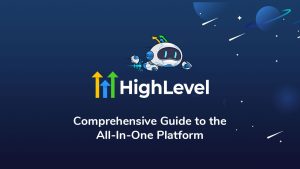As businesses continue to embrace online platforms, the competition for visibility grows fiercer by the day. Mastering Search engine optimization (SEO) has become crucial in ensuring your website survives and thrives amidst this ever-evolving digital ecosystem.
In this guide, we’ll demystify SEO principles and show how a solid understanding of these fundamentals can help propel your website to new heights, driving organic traffic, boosting brand credibility, and ultimately unlocking your business’s potential. Let’s explore the vital role of SEO and show you how to be an SEO expert.
Master Keyword Research
Researching keywords is one of the most important SEO principle that marketers need to know and understand. It involves analyzing and identifying particular words and phrases that online users use when searching for information. This is a crucial part of search engine optimization (SEO). As it helps you comprehend the search terms that your intended audience uses to find content that relates to your industry or niche. Surrounding your content with high-volume keywords can not only drive traffic but showcase your expertise as a leader in your industry.
Keyword research is important for several reasons:
- Understanding user intent: By researching keywords, you can better understand the needs, questions, and problems your target audience faces. This allows you to create content that addresses their specific needs and provides value to them.
- Content creation and optimization: Knowing the right keywords to target helps you create relevant, informative content that aligns with user intent. It also allows you to optimize your content by strategically placing the keywords in title tags, meta descriptions, headers, and throughout the body text, which can improve your visibility in search engine results pages (SERPs).
- Improve conversion rate: When you target keywords that align with user intent and create content that addresses their needs, you’re more likely to attract users who are ready to take action, such as making a purchase or signing up for a newsletter.
Create High-Quality Content
Over the years, online content has experienced exponential growth. For companies to effectively showcase their brand, they must create content with great care. Nowadays, content must not only be of high quality but also easily digestible, whether it be through reading, listening, or watching.
In today’s society, content creators have a narrow window of approximately eight seconds or less to captivate their audience. Therefore, the content must be engaging and, most importantly, useful. Failing to do so may result in losing the audience’s attention.
The SEO principles of content creation are:
- Understand your audience: Before creating content, research your target audience and understand their preferences, interests, and pain points. This will help you produce content that resonates with them and addresses their needs.
- Create unique and original content: Avoid duplicating content from other sources. Instead, provide fresh and unique perspectives on topics within your niche. Original content is more likely to engage users and earn backlinks, which can improve your search engine rankings.
- Use proper formatting and structure: Break up your content into easily digestible sections using headings, subheadings, bullet points, and short paragraphs. This makes it easier for readers to scan and understand your content and helps search engines comprehend the structure of your content.
- Incorporate visuals: Use images, videos, infographics, and other visual elements to support your content and enhance user engagement. Don’t forget to include descriptive alt text for images to improve accessibility and SEO.
- Update and maintain content: Regularly review and update your content to ensure it remains accurate, relevant, and valuable to your audience. This can help maintain or improve your search engine rankings over time.
Optimize Your Linking Strategy
Creating an effective backlink strategy is essential for SEO success. Backlinks are links from one external website to another. They are essential because they help search engines determine the quality and relevance of your content. Internal links are links that go from one page on your site to another page on your site.
External links are links that go from one page on your site to a page on another website. When creating a backlink strategy, it’s important to get high-quality backlinks from relevant websites. Quality over quantity is key here – having fewer high-quality backlinks than many low-quality ones is better.
You can get quality backlinks by creating linkable assets such as infographics and other visual assets, writing shareable content, leveraging influencer marketing, performing technical SEO audits, using broken link-building strategies, reclaiming unlinked mentions, becoming a source for other publishers, and getting “best X” list mentions.
Here are some characteristics of good-quality backlinks:
- Relevance: The best backlinks come from sites that are relevant to your own. For instance, if you run a health and fitness blog. A link from a well-known gym or nutrition site would be more valuable than one about cars.
- Authority: High-quality backlinks come from authoritative websites. These sites have established trust and expertise in their subject matter in the eyes of search engines.
- Trustworthiness: Websites that are trustworthy and secure (HTTPS) are more likely to provide quality backlinks. Search engines like Google prioritize secure sites, so links from these sites can help improve your ranking.
- Traffic: If the site linking to you has high traffic. It can boost your site’s visibility and potentially bring in more visitors.
- DoFollow Links: In terms of SEO, DoFollow links are the most valuable because they pass on link equity or ‘link juice’. This helps to improve your website’s domain authority.
- Editorial Links: These are the links that result from good content and effective marketing. They’re given naturally by sites and pages that want to reference your content or company.
Optimize Your User Experience (UX)
User Experience, often abbreviated as UX, is one of the most critical SEO principles. It refers to the feelings and thoughts a person has when using a product, system, or service. It encompasses their practical, emotional, and meaningful interactions with the product, as well as their overall satisfaction with it.
In the context of a website, UX is all about how users interact with your site, how easy it is to navigate, find information, understand the content, and complete tasks like making a purchase or filling out a form. It’s not just about making things look nice, the color schemes you used, or how fast a page loads. It’s about creating a seamless, intuitive, and enjoyable experience that encourages users to return.
Optimizing your site for UX is necessary because it directly impacts your business goals. Here’s why:
- Increased Customer Satisfaction: A well-designed, user-friendly website can significantly enhance user satisfaction. Happy users are more likely to become repeat customers and recommend your site to others.
- Improved Conversion Rates: When your site is easy to navigate, and users can find what they’re looking for. They’re more likely to purchase or take whatever action they want.
- Reduced Bounce Rate: If users find your site confusing or challenging to use, they’re likely to leave (or “bounce”) without taking any action. By improving UX, you can keep users on your site longer and increase their conversion chances.
- Better SEO Ranking: Good UX design can also help improve your site’s ranking in search engine results, making it easier for potential customers to find you.
- Competitive Advantage: In today’s digital age, having a website that stands out from the crowd in terms of usability can give you a significant edge over your competitors.
Master Technical SEO
The Technical side of SEO is the boring part, but still a critical SEP principle. It refers to optimizing your website for the crawling and indexing phase. It ensures search engines can easily find, crawl, interpret, and index your website’s content. In essence, it’s all about improving your site’s infrastructure to meet the technical requirements of modern search engines.
Here are some important aspects of technical SEO:
- Website Speed: This is how quickly your site and its pages load. Faster load times improve user experience and can help your site rank higher in search results.
- Mobile-Friendliness: In this age of mobile browsing, it is crucial to ensure that your website is optimized for mobile devices since it is the most commonly used method for online activity. This means ensuring your site is responsive and looks and functions well on smaller screens.
- XML Sitemap: This is a file that helps search engines understand your website’s structure while they are crawling it. It lists the URLs for a site along with additional metadata about each URL.
- Robots.txt File: This file tells search engine crawlers which pages or files the crawler can or can’t request from your site.
- URL Structure: A clean and well-structured URL is easier for search engines to crawl and for users to understand.
- HTTPS (Secure Sockets Layer): HTTPS is a secure system for handling sensitive information. Google has confirmed that it uses HTTPS as a ranking signal, so it’s worth considering for your site.
- Structured Data: This is a standard format used to provide information and classify the content of a webpage.
- Canonical Tags: To prevent duplicate content problems, web pages use a “canonical” or “preferred” version.
Conclusion
Mastering SEO principles is no longer an optional skill for marketers but a necessity. As the digital landscape continues to evolve, the importance of SEO only grows stronger. SEO can significantly enhance a brand’s visibility, credibility, and user experience.
Implementing effective SEO strategies is essential to ensure that search engines can quickly discover your website, resulting in higher rankings in search results. This organic visibility is critical in driving quality traffic to your site, enhancing brand awareness and authority, and ultimately increasing conversions and revenue.
SEO principles like high-quality content creation, technical optimization, and backlink acquisition can help establish your brand as an industry authority. Not only does this instill trust and credibility among your audience, but it also signals to search engines that your site is reliable and relevant.
Frequently Asked Questions
What Does an SEO Strategy Look Like?
There are several steps you should take. First, align your SEO efforts with your business goals and define key performance indicators (KPIs). Research keywords to determine the most relevant terms to your business. Then, specify the most valuable pages on your website and conduct a competitive analysis to see your competitors’ strategies.
After that, create high-quality content that naturally includes targeted keywords. Additionally, use keywords in page titles, meta descriptions, and image alt tags. Finally, build backlinks from other websites and monitor your progress over time.
What Is Not Recommended in SEO?
It’s essential to avoid common mistakes to improve your website’s SEO. Some of these mistakes include not researching keywords, targeting too difficult keywords, not building enough backlinks, creating the wrong type of content, and not optimizing for local search.
Also, ensure your title tags and meta descriptions are unique and optimized for the right keywords. Remember to consider mobile traffic and set clear SEO goals. Avoid keyword stuffing and unnatural phrasing, and don’t rely solely on old-school SEO practices like including your website name in all title tags. Finally, it’s vital to match search intent and pay attention to this crucial aspect of SEO.
What Is the Most Difficult Part of SEO?
The most challenging aspect of SEO is time. SEO is a long and difficult process that takes months to start reaping the benefits. Many companies and individuals, for that matter, don’t see the value in it until much later down the line. Companies that trust the SEO process are usually the leaders in their respective industries and have established an SEO routine that works.







